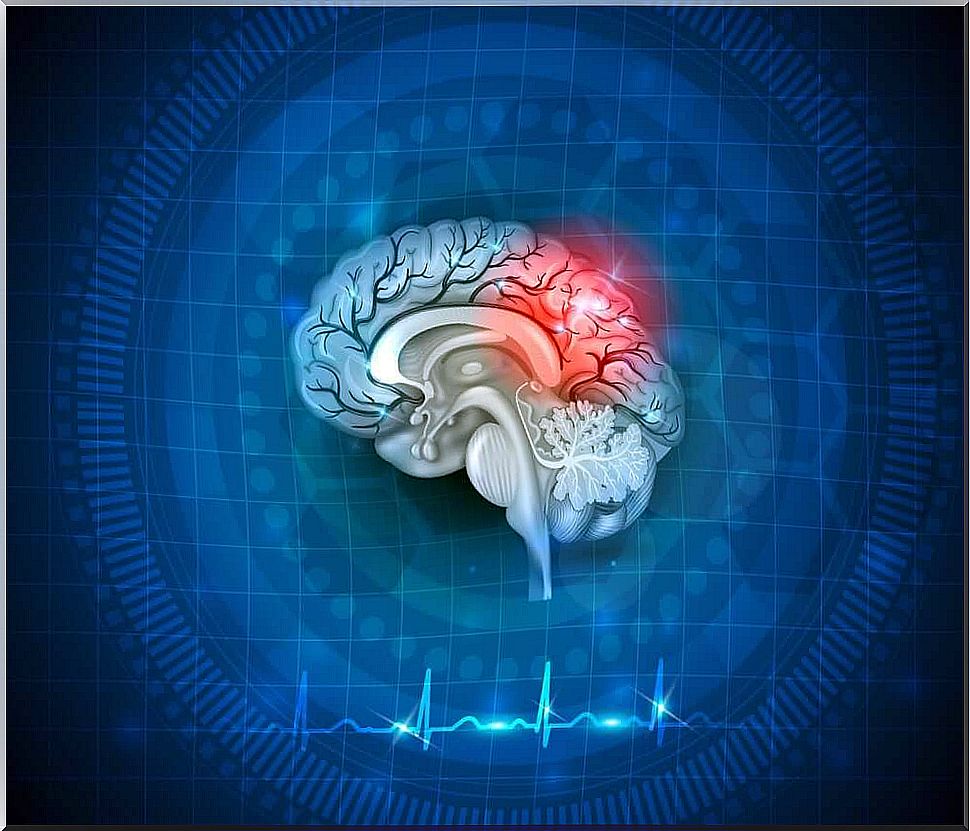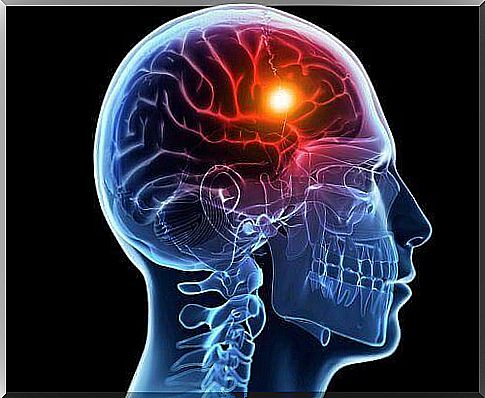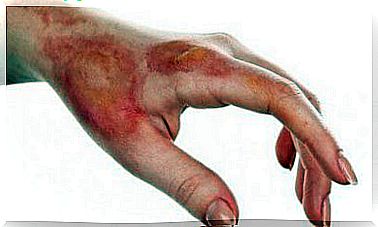Cerebral Hypoxia: Types And Causes

We speak of cerebral hypoxia when the flow of oxygen reaching the brain is less than normal. The normal flow of oxygen allows the brain to function properly, according to the needs of the body.
It should be noted that the brain is an organ whose functions should not cease. In some cases, certain areas are activated rather than others, but the other organs of the human body depend on its optimal performance.
Due to the constant functioning, the brain is a large consumer of oxygen. The latter comes through the arteries that distribute blood from the neck up. When blood decreases, so does oxygen.
The brain is heavily affected by the lack of oxygen. The cells that make it up begin the dying process, known as a cerebral infarction, just five minutes after the absence of oxygen. This only demonstrates the importance that an episode of cerebral hypoxia can have .
Causes of cerebral hypoxia
The causes of cerebral hypoxia can be various. In some cases there is a lower supply of oxygen to the cranial region, while in others, together with oxygen, there is also a decrease in blood flow, with all the consequences of the case.
Among the different causes we can list:
- Altitude : Staying at great altitudes above sea level causes a drop in the oxygen available to the brain to function. It is “altitude sickness” and is associated with sports such as climbing and mountaineering.
- Gas poisoning : carbon monoxide is the main culprit. When poisoning occurs with this gas, oxygen in the blood is replaced by carbon monoxide. In this way, the cells of the whole organism receive an element that they cannot use for their metabolism.
- Neurological diseases of the spinal cord : some diseases, such as amyotrophic lateral sclerosis, attack the respiratory center of the brain, paralyzing the respiratory muscles. When respiratory mechanics are impaired, less oxygen enters and a choking-like condition occurs.
- Asphyxia : whether intentional, with a criminal motive, or linked to accidents, it causes cerebral hypoxia. Strongly compressing the throat, drowning or inhaling the fumes of a fire are among the various possible forms of suffocation.
- Arterial hypotension : when blood pressure is too low, it is insufficient to irrigate the tissues, especially those furthest from the heart. Among the tissues most affected is the brain.
- Heart problems : Any heart disease that limits your adequate pumping and rhythm capacity can cause cerebral hypoxia. It can relate to an acute event, such as myocardial infarction, or chronic situations such as arrhythmias.
- Stroke : produces cerebral hypoxia in certain areas, both due to the obstruction of a cerebral artery due to a clot, and to the rupture of a section of the vessels of the brain, causing in this case a hemorrhage.

Classification
The classification varies according to the affected brain area. Some hypoxic episodes affect only the cells of a certain point in the brain, while in other cases the general flow is interrupted. Below are the different types of brain hypoxia :
- Focal : cerebral hypoxia, in this case, is concentrated in one point. The classic example is a stroke that originates from a clot blocking a cerebral artery.
- Diffuse : the decrease in oxygen flow is so called, which occurs uniformly throughout the brain, but without serious consequences. The functions of brain cells are reduced, but infarction rarely occurs.
- Global : in this case the reduction affects the entire brain and has a certain severity. The absence of oxygen causes the cells to die, and symptoms appear based on the affected area of the brain.
- Massive : it is the maximum expression of cerebral hypoxia, in which large areas of the brain are damaged simultaneously putting the patient’s life and eventual recovery at risk.

How to know if you have cerebral hypoxia
Although the symptoms of cerebral hypoxia depend on the duration of the absence of oxygen, characteristic symptoms also exist. Remember that a few seconds of hypoxia may have no repercussions; however, if it extends for five minutes, it will definitely cause a brain infarction.
In momentary cerebral hypoxia there may be a lack of attention, memory loss, strange body sensations, speech difficulties, etc. Movement restriction may also occur, such as in the presence of paralysis.
A longer period of time without oxygen causes seizures, fainting with loss of consciousness, and even coma. At this point, care becomes an emergency requiring immediate life support measures from the medical staff.
When you get past five minutes of brain hypoxia, you have a heart attack. A small heart attack can result in later recovery with rehabilitation, but a massive heart attack can cause the entire brain to die.
When faced with any neurological symptoms, it is advisable to consult a specialist. If the person faints and becomes unconscious, or has convulsions, the first thing to do is to contact the emergency room for a quick intervention.









